
GOLD Birth & Beyond Conference 2020
The birth of a child is a vulnerable time full of profound changes. Respectful, kind, culturally sensitive and evidence-based care results in families who feel valued and empowered as they start their new journey. This has far reaching implications for the physical and mental health for the parent(s) and child, and society as a whole.
The GOLD Birth & Beyond Online Conference provides you with the clinical skills you need to help your clients successfully navigate the adjustment to parenthood. We have a fantastic program rich with transferable and practice-changing knowledge, that will help you to elevate the care you provide and improve outcomes. This conference is perfect for IBCLCs, Peer Counselors, Parent Educators, Early Childhood Educators, Child and Youth Workers, Social Workers/Masters Social Work, Psychologists, Family Life Educators in the US, Early Years Mental Health Workers, WIC, Pediatricians, Postpartum Doulas,and Doulas.
Learn about teaching methods to help awaken the parent in your clients, the crying curve and it's impact on breastfeeding and postpartum, perinatal care for women with disabilities, maternal suicide, parenting a high-needs baby, creating a postpartum plan and so much more!
Please note that these presentations were originally offered in 2020 at our GOLD Birth & Beyond Online Conference.
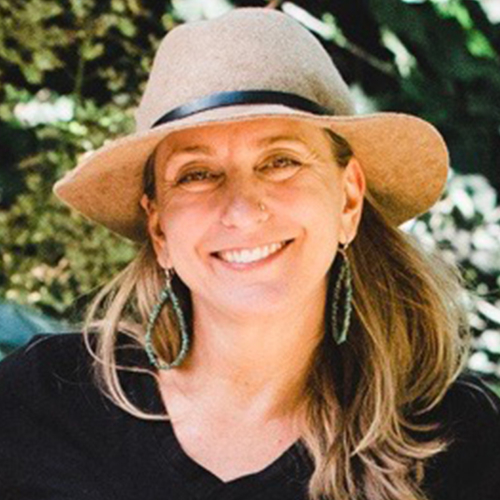

Dr. Britta Bushnell (she/her) is author of Transformed by Birth, host of the podcast Transformed, veteran childbirth educator, celebrated speaker, mythologist, wife and mother, and specialist in childbirth, relationship, and parenting. For over 20 years, Dr. Bushnell has worked with individuals and couples as they prepare for the life-changing experience of giving birth. Her work with parents has been enriched by her doctoral work in mythology and psychology, her years spent as a co-owner of Birthing From Within, as well as her dedicated study of solution-focused brief therapy, storytelling, and skills for supporting intimate relationships while parenting.
Britta is an engaging teacher, speaker, and presenter. Whether addressing a room of expectant parents, new mothers, or seasoned birth professionals, Britta has a way of captivating and inspiring them all. She has presented at conferences such as DONA International, MANA, ICEA, and Lamaze. Additionally, Britta has been featured on several popular podcasts including Informed Pregnancy, Birthful, and Atomic Moms. In 2016, in recognition of her transformative childbirth classes, Britta was awarded "Educator of the Year" by the Southern California Doula Association (DASC).
Topic: Awakening the Parent: Are You Supporting or Sabotaging Your Client’s Transformation? - [View Abstract]
2. List teaching behaviors that may reinforce innocence rather than inspire maturation in the parents with whom they work.
3. Use new skills to support individuals as they transition into parenthood.
Becoming a parent is a process of profound maturation, one that requires expectant parents to grow into decision-makers for their growing families. Teachers and experts in the childbirth and parenting fields naturally want to share their hard-earned wisdom with expectant parents. However, doing so without awareness may be unwittingly reinforcing the idea for new parents, that experts “out there” hold the knowledge needed to be make decisions in the best interest of their growing family. This effectively keeps expectant parents in the energetic position of the child (the one who receives guidance) rather than supporting them to grow into the position of the parent (the one who makes decisions and acts). If we want to help the expectant parents grow into autonomous and self-guided parents, educators must practice in such a way that inspires the growth needed in the parent rather than simply fill them with information. Flipping from the authority of teacher and expert to mentor or guide, reduces the hierarchical nature of the relationship and can help awaken the inner authority of the parent-to-be. Understanding this dynamic along with a few basic tools can help you better support your clients as they stretch into parenthood.


Dr Raja Gangopadhyay is a Consultant Obstetrician & Gynaecologist at the West Hertfordshire Hospitals NHS Trust, UK, with a special interest in Perinatal Mental Health (PMH) and a Visiting Lecturer at the University of Hertfordshire (UK). In conjunction with his multidisciplinary team, Raja has been championing joint approaches to perinatal mental health that take into account infant mental health. Raja is a well-known Trainer in PMH and organises teaching, training and Conference for Obstetricians, Midwives, GP and other healthcare professionals. He is a renowned speaker and has been invited to speak at many National and International events. He obtained a Certificate in Medical Education from the University of Bedfordshire, UK. He has been invited to House of Lords meeting as a member of the Expert panel and organised and chaired events at the House of Commons (UK Parliament). He has been invited to many media interviews (Radio/ Television) and views/ opinions have been quoted in many leading UK newspapers. He is the Founder of the International Forum for Wellbeing In Pregnancy (IFWIP): a unique initiative to raise awareness of mental wellbeing during pregnancy from a global perspective (www.ifwip.org)
Objective 1: Impact of stress and mental health conditions (during pregnancy) on the fetus: 'Foetal programming'
Objective 2: Approach to the care of mental health conditions during pregnancy.
Objective 3: Use of psychotropic drugs during pregnancy & breastfeeding.
The presentation will start with the global statistics of mental health conditions during pregnancy and the economic cost to health and social care. Then the impact of stress and mental health problems during pregnancy will be discussed with an outline of 'Foetal Programming'. Subsequently, the practical aspects of care of Perinatal Mental Health conditions will be elaborated with a focus on screening, Care Planning, use of medication during pregnancy and breastfeeding. An outline of the concept of wellbeing will be discussed with lifestyle modification and stress management strategies (NURTURE Approach).
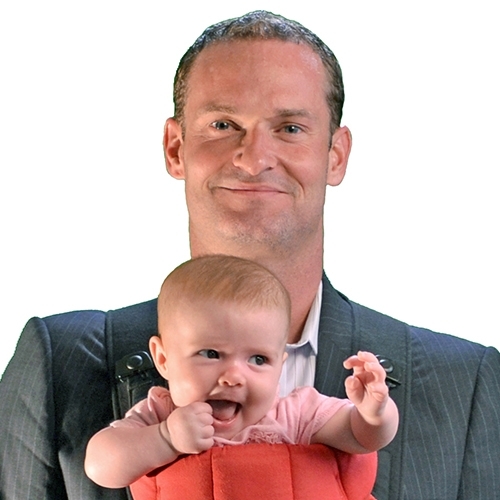

Dr. Singley is a San Diego-based board certified psychologist and Director of The Center for Men’s Excellence. His research and practice focus on men’s mental health with a particular emphasis on reproductive psychology and the transition to fatherhood. Dr. Singley won the American Psychological Association’s 2017 Practitioner of the Year Award from the Division on Men & Masculinities. He is Past President of the APA’s Section on Positive Psychology and currently serves on the Board of the APA’s Society for the Psychological Study of Men and Masculinities as well as Postpartum Support International's Advisory Council. He conducts trainings around the country to assist individuals and organizations to enhance their level of father inclusiveness and founded the grant-funded Basic Training for New Dads, Inc nonprofit and Padre Cadre social networking application just for dads in order to give new fathers the tools they need to be highly engaged with their infants as well as their partners. In his free time, Dr. Singley likes to cook, surf, read, and drive his two sons to activities all over town so they can’t escape his annoying shrinky questions. Follow him @MenExcel and www.facebook.com/MenExcel/.
2: Describe key psychosocial considerations and prevalence rates regarding fathers’ mental health to consider when working with fathers and mothers.
3: List concrete screening, assessment, resources, and interventional steps to take with fathers throughout the perinatal period.
Topics covered will include common misconceptions about men’s perinatal mental health along with best evidence-based practices in screening, assessment, and interventions to enhance new fathers’ mental health and engagement with their children as well as their partners.
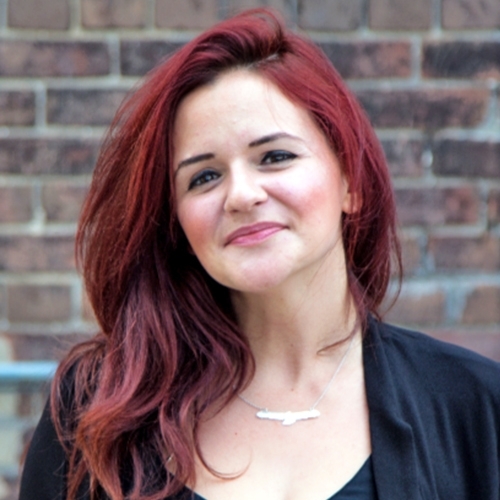

Emily Blackmoon (French/British/Algonquin) (She/Her) is a Registered Social Worker and holistic psychotherapist. She has worked for over 10 years as a therapist and case manager specifically within the urban Indigenous community of Toronto, supporting parents, families, children and youth. In 2014 she completed a 4 year training in Gestalt therapy and is now a supervisor. In her therapy practices, Emily combines Anti-Racist. Anti-Oppressive, and Feminist principals of social work with Gestalt therapy and Indigenous worldviews. Emily works with new parents to support them in developing wholistic, empowered and gentle approaches to the pregnancy/parenting journey.
2. Explain PMAD symptomology and identify three signs that their clients may be struggling.
3. Describe how to plan for wellness in the post-partum stage.
Participants will be invited to holistically consider the postpartum needs of birth parents. Through an invitation to walk through the various aspects of their human journey - from the spiritual and cultural, to the emotional, the cognitive and the physical- participants will be invited to think critically and holistically about the human needs of those on their journey towards giving birth and after giving birth. Emily will use these directions to invite participants to support professionals in asking their patients and clients: what they want out of their pregnancy/postpartum journey? Who and what is within their constellation of support, and how? How do we support our parents in accessing their own agency to ask for support in the event that they experience the symptoms of postpartum mood and anxiety disorders?
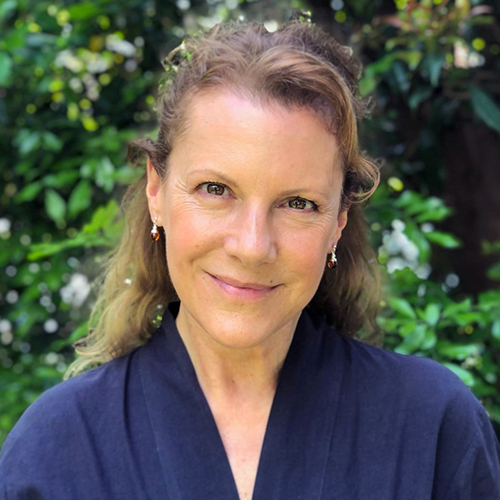

With over 25 years’ experience as a relationship counsellor, parents’ group facilitator, mental health educator, partner and mum, Elly Taylor has become an internationally known parenthood preparation and perinatal relationship expert and the award-winning author of Becoming Us. Elly’s passion is preparing parents for a happy and healthy family—at any stage in their parenthood journey, and especially in a challenging world. Her Becoming Us approach includes fathers and partners in all aspects of pregnancy, birth and beyond, harnesses the attachment bond between couples to stabilise them through the life changes and challenges of parenthood and links both parents into community services to support the mental, emotional and relational wellbeing of the whole family.
Elly has served as an advisor for numerous university research projects and her ground-breaking Becoming Us developmental framework has now become a comprehensive multi-disciplinary education and professional training and courses for parents. In a full circle moment, Elly recently trained midwives, allied health and therapy professionals in her local community and now Becoming Us Nest Building Sessions are preparing expectant parents in the hospitals where her children were born. Elly lives in Sydney, Australia with her firefighter husband, their three kidults and an abundance of pets.
Topic: Communication and Conflict - How Connection Supports Both - [View Abstract]
Topic: Including Fathers and Partners to Support Perinatal Mental Health and Marriages - [View Abstract]
1. Explain how common PMH and relationship issues are.
2. List three major life transitions that impact both mothers’ and fathers’ mental health and marriages.
3. List three ways to include fathers and partners in prenatal preparation and postpartum support.
"The “transition” into parenthood is supposed to be a time of joy, love and wonder, and yet research paints a very different picture: currently 1 in 3 mothers and 1 in 5 fathers suffer from anxiety or depression during the perinatal period. You might also be shocked to know that 92% of couples report increased conflict and 67% a decline in relationship satisfaction in the first few years of family.
And referring to parenthood as a “transition” is misleading – there are, in fact, multiple transitions for couples to navigate.
Including fathers or partners in pregnancy, birth and the multiple transitions of early parenthood helps to reduce both mothers' and fathers' risks for anxiety, depression and relationship problems and supports both parents' mental, emotional and relationship health, so the whole family can thrive. In this presentation, practitioners will learn simple and easy ways to include fathers and partners, even if they’re not in the room, and discover how small things can make a big difference to a family’s future.
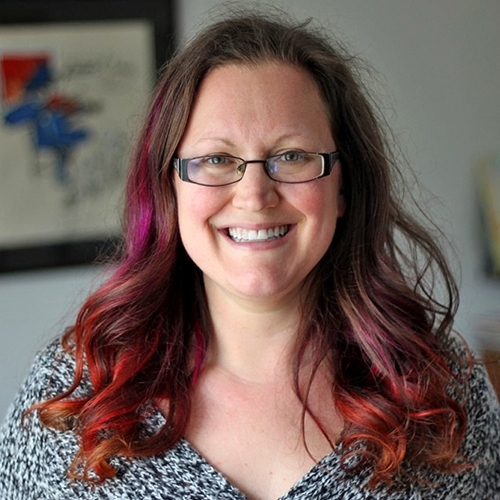

Tracy Cassels, PhD is the founder of Evolutionary Parenting, a website focused on disseminating the research on parenting. In addition to her writing, she provides courses and individual help to families around the world on myriad parenting issues. She has previously worked in non-profit and policy positions in the areas of child development and education and is currently an advisor to the Children’s Health and Human Rights Partnership in Canada. She has a B.A. in Cognitive Science from the University of California, Berkeley, an M.A. in Clinical Psychology from the University of British Columbia, and a Ph.D. in Developmental Psychology, also from the University of British Columbia. She has appeared in numerous mainstream media sources such as the CBC, Psychology Today, The Globe and Mail, Belly Belly, and more. She lives in Prince Edward County, Ontario, Canada with her husband and two children.
1. Define what a high-needs baby is
2. Explain reasons why our culture does not support these families.
3. List key features for raising a sensitive/orchid child.
4. Explain to help parents navigate an unsupportive society.
Sensitive or orchid individuals make up about 20% of the population, children included. These individuals face what we call ‘differential susceptibility’ based on their environments, child-rearing included. In environments that are not well-suited to their sensitive nature, they face higher rates of disease, mental health disorders, and other negative outcomes. In contrast, when in environments that are supportive and well-suited to their nature, they thrive and can have outcomes that surpass those of their less sensitive counterparts. The problem for most parents is that the advice and techniques common in our culture are at odds with what these children need, putting parents in a difficult spot of either not knowing how to parent such a child (but knowing the advice seems wrong) or giving in and finding themselves in ongoing struggles with their child. This talk will review the research on sensitive/orchid children and how we can use this information to help families identify parenting methods and techniques in the areas of general parenting, sleep, child care/schooling, and discipline that will provide the type of foundation these children need to thrive.
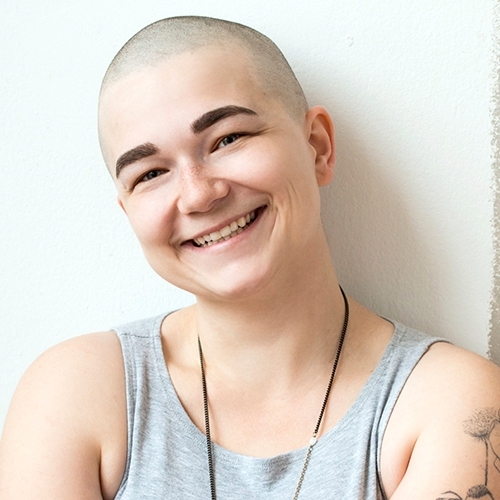

Tynan Rhea is a queer, nonbinary settler with German and Slovak ancestry. Tynan has a private practice online across Canada as a sex & relationship therapist, sex educator, and aromatherapist. Tynan developed and teaches the Sex & Birth course for Doula Training Canada and is the founder of PostpartumSex.com. Tynan approaches their practice from sex-positive, queer & trans-affirming, trauma-informed, anti-oppressive, and feminist frameworks. Tynan started their private practice in Tkaronto and grew-up in Wasaga Beach. You can find Tynan on Facebook, Instagram @TynanRhea or TynanRhea.com
1. Recite Tynan's Sexual Self Model and demonstrate how to apply it when working with clients and checking biases
2. Explain on the importance of being trauma-experts and the value of a sex-positive framework.
3. Discuss cultural, social, and personal influences on people's experiences with sex postpartum.
Have you ever wondered why some people's sex lives improve after having children and why so many other's struggle? Or maybe you want to have a better understanding of what is "normal" for postpartum sex. In this introductory presentation, you'll learn how the different aspects of our lives influence our sexual experiences postpartum including the importance of being trauma-informed and sex-positive in order to effectively respond to your client's sexual health support needs.
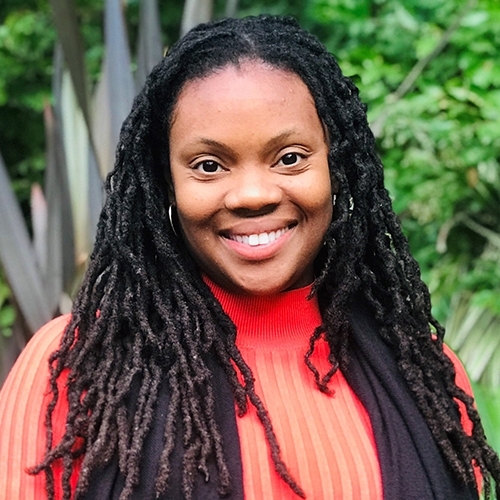

Dr. Sayida Peprah is both a licensed clinical psychologist and birth doula, with over 10 years of experience in both fields. She specializes in multicultural psychology, trauma, suicide prevention and maternal mental health. Dr. Sayida has a multi-faced career as a psychologist, diversity and cross-cultural educator, and community-based doula program director. Dr. Sayida is also the Founder and Executive Director of the non-profit organization Diversity Uplifts, Inc., who's mission is “fostering diversity and supporting communities and the providers who serve them.
An advocate for human rights in childbirth, Dr. Sayida is a member of the Black Women Birthing Justice Collective and a Collaborator with the Black Mamas Matter Alliance, promoting research, education and community-based services to positively transform the birthing experiences of black families. Dr. Sayida has served and continues to serve on advisory committees including Perinatal Equity Initiative Committees, and formerly the California Maternal Suicide Review Committee and others aimed at identifying key risks and opportunities for quality improvement and prevention around disparities.
1: Define pregnancy-related suicide.
2: List two key findings from maternal suicide research.
3: List two recommendations for preventing suicide in higher risk individuals.
4: List two symptoms of an individual experiencing suicidality.
The occurrence of a suicide during pregnancy or up to one year postpartum is a rare but tragic event. While we expect that family members will be at a loss for how to detect or care for an acutely mentally ill loved one, it is concerning that many perinatal/maternal care and support professionals also report feeling unprepared and ill equipped to recognize and address the needs of patients in this situation. Additionally, publications on maternal mortality generally do not include information on maternal suicide, limiting providers access to updated research on the topic. During this presentation, maternal suicide research findings, as well as clinical considerations will be reviewed. Maternal suicide risks, symptoms, cultural considerations and recommendations for prevention and intervention will be reviewed. Practical scenarios for what to do in real situations will be highlighted.
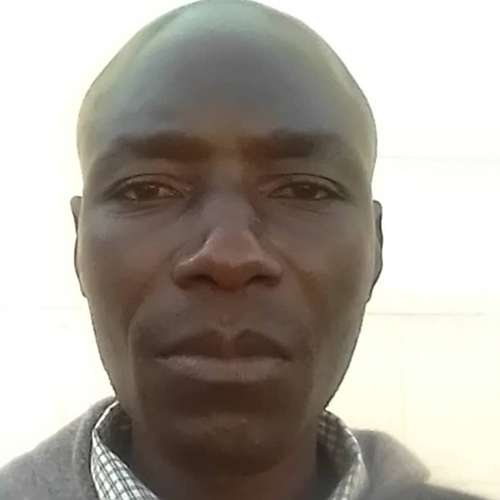

Linos Muvhu is The Secretary and Chief Talent Team Leader of Society for Pre and Post Natal Services’ (SPANS) Maternal, Paternal and child mental health programme in Zimbabwe. SPANS promotes good mental health across the life course starting in the perinatal period. It is a national evidence based family focused program. Linos trained as a family therapist with Connect (Zimbabwe Institute of Systemic family Therapy). He is Africa Ambassador for Fathers Mental Health Day and passionate about the rights of all people to enjoy good sound mental health, in particular the right for good family mental health and in 2016, he initiated the first ever International Conference on Maternal Mental Health in Africa (ICAMMHA.)
2. Describe the training program.
3. Discuss how to Incorporate mental, social, emotional and relationship supports.
Poor mental health affects the expectant mothers and father's overall emotional, environmental, social, spiritual and physical well-being, but also impacts unborn, newborn and developing children, partners, family, friends, and society as a whole. Championing early diagnosis and screening of mental health to every expectant mother and father during their routine antenatal and postnatal care visits; Awareness campaigns in communities about maternal, paternal and child health mental health issues to improve the uptake of services; Training community health care workers (early detecting, screening, and treatment of maternal and child mental illness). The Mashonaland east province under Goromonzi district is a pre-urban and a rural setting in Zimbabwe. A neglected area that significantly impacts maternal and child mortality and morbidity are that of maternal, paternal and child mental health is the main area of focus of this presentation.
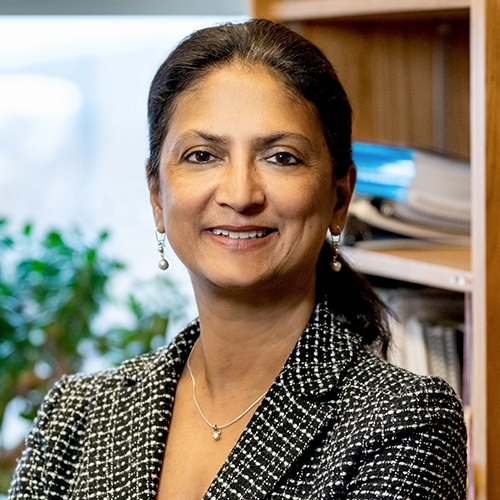

Dr. Monika Mitra is the Nancy Lurie Marks Associate Professor of Disability Policy, and Director of the Lurie Institute for Disability Policy at Brandeis University’s Heller School for Social Policy and Management. Her research focuses on the health and wellbeing of people with disabilities and their families. She co-leads the Community Living Policy Center which is aimed at improving policies and practices that advance community living outcomes for people with disabilities and the National Research Center for Parents with Disabilities which is focused on addressing knowledge gaps regarding the needs of parents with diverse disabilities and their families. Dr. Mitra is co-editor-in-chief of the Disability and Health Journal. Prior to joining Brandeis, she was Associate Professor in the Department of Family Medicine and Community Health at the University of Massachusetts Medical School.
2: Describe the unmet needs and barriers to care among women with disabilities
3: List recommendations to improving perinatal care among women with disabilities
In the last ten years, an emerging body of evidence has documented the disparities in perinatal care, quality, and outcomes of women with disabilities.
This presentation will provide an in-depth examination of the unmet needs and barriers to perinatal care among women with different disabilities. It will highlight disparities in pregnancy and birth outcomes among women with and without disabilities. It will also outline recommendations to women with disabilities who are considering pregnancy and examine the experiences and needs of health care practitioners in providing obstetric care to women with disabilities.
The findings for this presentation are informed by analyses of nationally representative surveys, population-based administrative data, and from interviews with disabled women and obstetric care clinicians from the United States. We will include findings on the perinatal health of women with physical disabilities, women who are deaf and hard of hearing, and women with intellectual and developmental disabilities.
This presentation will shed light on the unmet needs and barriers to care of women with disabilities during pregnancy and childbirth and emphasize the urgent need for policy and practice recommendations to improve perinatal care of women with disabilities.
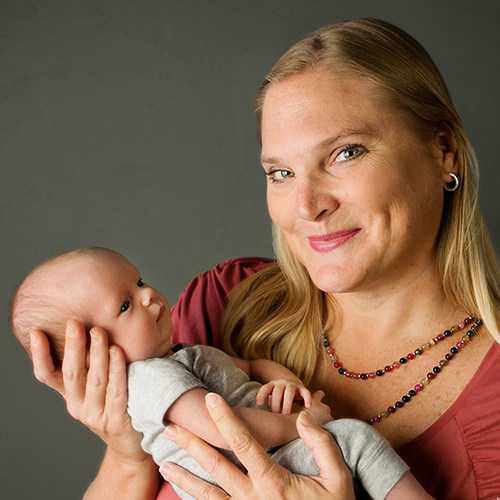

A love for babies fueled Kimberly's 20+ year career serving families in the postpartum time frame. With a passion for nurturing new parents, she trains doulas and educators with CAPPA to support and educate for a strong beginning of bonding and connection. She loves teaching expectant families to have a smooth transition to new baby life through the Providence Healthcare System in Portland, OR. She began as a postpartum doula, then quickly added breastfeeding and new parent classes to help parents from the very beginning, and then became an IBCLC to meet their bigger challenges. She owns ABC Doula & Newborn Care in Portland, OR, is the mother of 2 grown kids, and resides in Phoenix near her parents. Like many other baby whisperers, Kimberly has honed skills for listening and responding to babies that parents can quickly learn to understand and interpret their tiny humans. When she sees parents struggling, and especially with the most fussy of babies, her heart hopes that all parents could be given the tools to compassionately support their little ones, and learn how to meet their needs, which creates more confidence in themselves in their new roles as well.
Topic: Understanding Infant Crying - [View Abstract]
2. Define the roles of helpers and visitors in the early weeks of newborn family life, and compare and contrast the roles at different stages on the Crying Curve.
3. Draw and label the Crying Curve, identifying 3 different stages of development in an infant’s early newborn life.
The Crying Curve is an evidence-based pattern of crying that begins at about 42 weeks of gestation (2 weeks of extrauterine life), peaks at 6-8 weeks of age, and sharply declines by 12-15 weeks. As many as 15 different studies have concluded that this pattern is common across infants of all cultures, gestational ages (based on a 40-week gestation), and parenting styles—and the applications are many in the early parenting world. How can parents use this pattern to help them navigate breastfeeding? How can they gather their support people, family or village to maximize positive relationships and get the support they crave? How can they utilize it to help assess their newborn and understand what is needed for their specific situation? How much crying is too much crying? Lactation consultants, postpartum doulas, and other postpartum professionals who possess this information are well positioned to help to educate parents on how to best approach their postpartum recovery period, as well as navigate the ups and downs of breastfeeding and early newborn sleep. This session will aim to explain and apply the Crying Curve in multiple ways to support and guide the newborn family.
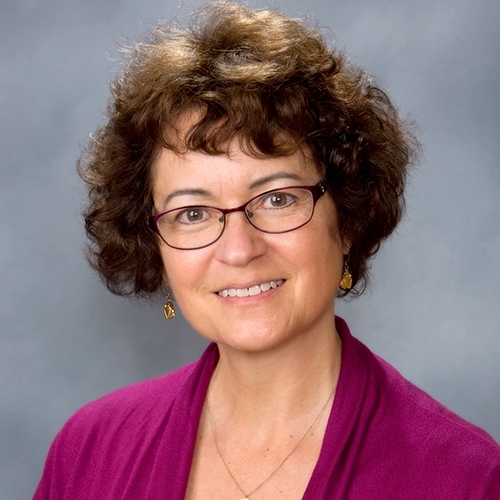

Darcia Narvaez, Professor Emerita of Psychology, University of Notre Dame researches moral development and flourishing from an interdisciplinary perspective, integrating anthropology, neuroscience, clinical, developmental and educational sciences. Her earlier careers include professional musician, business owner, classroom music teacher, classroom Spanish teacher and seminarian, among other things. She grew up bilingual/bicultural but calls the earth her home. Dr. Narvaez’s current research explores how early life experience influences wellbeing and moral character in children and adults. She is a fellow of the American Psychological Association and the American Educational Research Association and former editor of the Journal of Moral Education. She is on the advisory boards of Attachment Parenting International, Kindred, Your Whole Baby, and the Self Reg Institute. She has numerous publications, including more than 20 books such as Indigenous Sustainable Wisdom: First Nation Know-how for Global Flourishing; Basic Needs, Wellbeing and Morality: Fulfilling Human Potential and Embodied Morality: Protectionism, Engagement and Imagination. A recent book, Neurobiology and the Development of Human Morality: Evolution, Culture and Wisdom won the 2015 William James Book Award from the American Psychological Association and the 2017 Expanded Reason Award. She blogs for Psychology Today (“Moral Landscapes”) and hosts the webpage EvolvedNest.org.
2. Asses how immature a neonate is compared to other animals.
3. List three benefits of positive touch.
Every animal has a developmental system or nest for its young that matches up with the maturational schedule of offspring. Humans have a nest too although many people don’t realize it. The human nest refers to the experiences and care that a child receives after birth and in the years that follow. Modern child raising has changed significantly from the nest of our ancestors with concerning results. Learn more about the epigenetic impact of the early nest and how early life experience influences wellbeing and sociomoral character in children and adults as well as societal culture. Delegates will gain an understanding of the essential components of the early nest (including touch, responsivity, breastfeeding, alloparents, positive social support, play, and soothing perinatal experiences) along with ways to empower parents to incorporate them into their infant’s care to create a foundation for lifelong health and well being.
Accreditation
Midwifery CEUs - MEAC Contact Hours: This program is accredited through the Midwifery Education & Accreditation Council (MEAC) MEAC CEUs. Please note that 0.1 MEAC Midwifery CEU is equivalent to 1.0 NARM CEUs. This program is approved for 1.25 MEAC CEUs.
CERPs - Continuing Education Recognition Points: GOLD Conferences has been designated as a Long Term Provider of CERPs by the IBLCE--Approval #CLT114-07. This program is approved for 12.5 CERPs (1 L-CERPs)(11.5 R-CERPs)
If you have already participated in this program, you are not eligible to receive additional credits for viewing it again. Please send us an email to [email protected] if you have any questions.
Tags / Categories
(IBCLC) Education and Communication, (IBCLC) Maternal, (IBCLC) Psychology, Sociology, and Anthropology, Attachment & Relationships, Child Behavior & Dysregulation, Childbirth Education, Crying, Colic, Fussy Baby, Diversity, Equity & Inclusion, Perinatal Mood and Anxiety Disorders, Postpartum Care, Sexual Health, Trauma-Informed Care
How much time do I have to view the presentations?
- The viewing time will be specified for each product. When you purchase multiple items in your cart, the viewing time becomes CUMULATIVE. Ex. Lecture 1= 2 weeks and Lecture Pack 2 = 4 Weeks, you will have a total of 6 weeks viewing time for ALL the presentations made in that purchase.
- Time for viewing the talks begins once you purchase the product. For Live Webinars & Symposiums, the viewing period begins from when the live event takes place. Presentations can be accessed 24/7 and can be viewed as many times as you like during the viewing period.
What are bundled lectures?
- Presentations may be available individually or via a bundled package. Bundled lectures are a set of lectures that have been put together based on a specific category or topic. Some lectures will be available in both individual and lecture form, whereas others will be available only via a bundled lecture pack.
Will there be Handouts?
- YES! Each lecture comes with a PDF handout provided by the Speaker.
Some lectures include a Q&A, what does that mean?
- During our online conferences, presentations that occur live are also followed by a short 15 minute Question & Answer Session. The Speaker addresses questions that were posted by Delegates during the presentation. We include the recording of these Q&A Sessions as a bonus for you.
How can I receive a Certificate?
- If this presentation offers a certificate, once you are done viewing the lecture or the lectures within a bundle, submit your attendance record in order to be able to download your certificate. You'll be able to see which credits are offered for the lecture by hovering over the "Credits Available" link within the "Speakers & Topics" tab.
Professionals that selected this package also viewed

|
|

|











